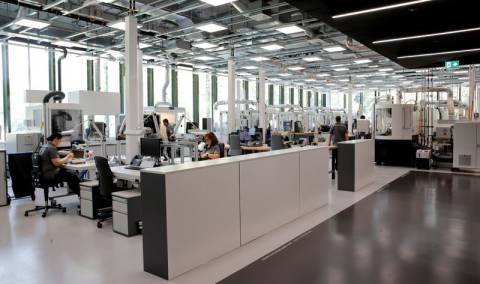ZURICH (Reuters) - The Swiss purchasing managers' (PMI) index fell by 1.1 points in July, according to data published on Tuesday, but remained in positive territory despite concerns about rising energy prices and a slowdown in export markets.

The manufacturing index dropped to a seasonally adjusted 58.0 points in July from 59.1 points in June in the survey compiled by the Swiss purchasing managers' association procure.ch and Credit Suisse. [S8N2YF02Z]
A reading over 50 signals expansion in the indicator which points to the economy's health in six months time.
In contrast to the situation in the eurozone, Swiss industry is a long way from contracting. That said, momentum continues to fall, said Credit Suisse economist Franziska Fischer.
Following the recovery from the pandemic, the service sector too is losing traction, she added. The services PMI fell to 55.2 points in July from 59 points in June.
The make-up of Swiss industry, with a strong presence in areas like pharmaceuticals and watches, helps the country balance downturns elsewhere, as they are less sensitive to broader economic swings.
Although the July manufacturing reading fell 12 points from July 2021, the labour market remains solid, Credit Suisse said.
While industrial firms are recruiting fewer staff, around a quarter are still taking on extra workers and only 6% are cutting jobs.
Companies which have been hit by supply chain problems were also seeing the first signs of an easing in purchase prices, the study said.
Still, it was not all good news for Swiss industry, with the order backlog indicator falling to 52.9 points, just above the growth threshold.
Credit Suisse now expects manufacturing activity to slow in the months ahead, and has reduced its Swiss GDP forecast for 2023 to 1% from 1.6% previously. The bank continues to expect the Swiss economy to grow by 2.5% this year.
(Reporting by John Revill)
